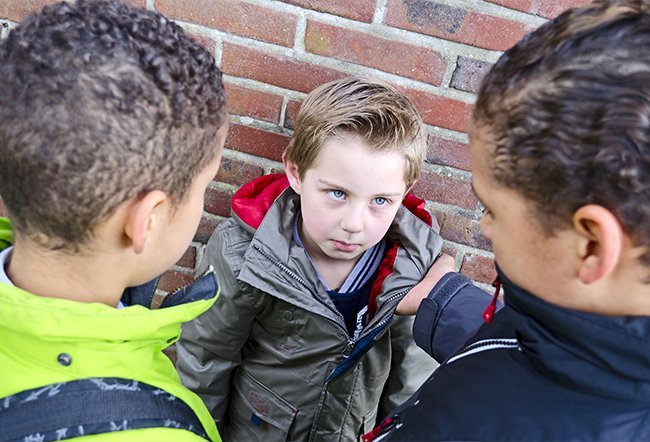What Are the Signs of a Troubled Child?

When a child is suffering from mental or emotional problems, they may not always know how to explain what is happening to them.
As a parent, it’s important to carefully observe your child and recognize warning signs that your child may need some help. And the earlier you can determine what areas of life are troubling your child, the better equipped you will be to guide them.
Potential signs your child may be troubled include the following:
- Decrease in school performance: Falling grades, lack of concentration, acting out in class, skipping school.
- Change in behavior: Drastic behavior changes, talking less than normal, shutting themselves up in their room, persistent sadness, hopelessness.
- Extreme mood swings: Highs and lows may be too erratic; they may be quiet and withdrawn and then overly excited and unable to slow down.
- Sudden outbursts of anger: Irritability, overreacting, temper tantrums, becoming easily annoyed, yelling or threatening people.
- Withdrawal from activities: Loss of interest, lack of motivation, lack of energy in doing previously enjoyed activities.
- Sudden change in friends: Hanging out with a totally new group of people instead of old friends.
- Social isolation: Wanting to be left alone regardless of family and friends reaching out, not interested in connecting or engaging in relationships, distant, increased time spent alone or wanting to be alone.
- Secretive behavior: Hiding trivial things, giving vague replies or no replies.
- Deception or lying: Repeated lying to cover up or avoid consequences for misbehavior, to obtain goods or favors, to avoid obligations.
- Stealing: Frequent requests for money, stealing money from parent’s wallets, selling objects in the home for money, shoplifting from stores.
- Defiance: Rude, disobedient, rebellious, and aggressive with parents, family members, teachers, and other adults or authority figures. Often argues with authority figures and blames others for misbehavior or mistakes.
- Changes in attitude and personality: Seems like a completely different person with a new personality. Suddenly develops a tough guy attitude or becomes more pessimistic.
- Difficulty with empathy: Laughing at other people’s pain or distress.
- Regularly missing curfew: Not coming home at the agreed upon time and staying out at night despite parental prohibitions or running away from home.
- Breaking rules: Acting against authority without thinking of consequences.
- Low self-esteem: Over-apologizing, seeking constant reassurance, comparing self to others.
- Excessive use of foul language: Trying to fit in with friends by cursing.
- Suicidal thoughts or actions: Self-harm, such as cutting or burning themselves, talking about wanting to hurt themselves, escaping, going to sleep and not waking up.
- Bullying and violence: Talking about wanting to hurt others. Intense jealousy, anger directed toward others, or lashing out aggressively. Violence against animals and other children.
- Change in clothing style: Wearing long-sleeve shirts and pants even in warm weather or lots of bracelets on wrists to cover up self-cutting.
- Changes in hairstyle: Drastic changes in hair color to fit in with friends, succumbing to negative peer pressure.
- Changes in music choices: Listening to radically different music than they used to, such as heavy metal, rap, or punk rock.
- Poor hygiene or appearance: Not showering, grooming, getting dressed, or taking care of daily hygiene.
- Changes in appetite or eating patterns: Skipping meals, avoiding food, hoarding food, binge eating, or stress eating.
- Body image issues: Overly concerned about body image and weight gain.
- Changes in sleep habits: Sleeping too much or too little, staying up late or up all night and refusing to get up in the morning for school.
- Excessive electronics usage: Internet, video games, social media, etc.
- Physical complaints: Frequent headaches, stomachaches, nausea, or other physical pains that interfere with one’s ability or willingness to participate in activities.
- Experimenting with alcohol and drugs: Signs of tobacco, alcohol, and other drug use, withdrawal symptoms, or needing money for no clear reason.
- Promiscuity: Maintaining unhealthy relationships, being taken advantage of by others, risky sexual behavior (unprotected sex and risking teenage pregnancy or getting sexually transmitted infections).
What can parents do to help a troubled child?
If you detect signs early when changes in behavior are still mild, it may be possible to help control those problems by making a few changes at home. This may include monitoring your child and their activities, establishing strict but reasonable rules, and enforcing consequences for misbehavior. Consistent, firm, and fair discipline strategies may help your child make better choices.
Some troubled children have mental health issues, such as depression, attention deficit hyperactivity disorder (ADHD), substance abuse issues, learning difficulties, or antisocial disorders. And others may have more serious problems, such as addiction, persistent depression, or severe violent behavior. In such cases, it’s important to get professional help.
